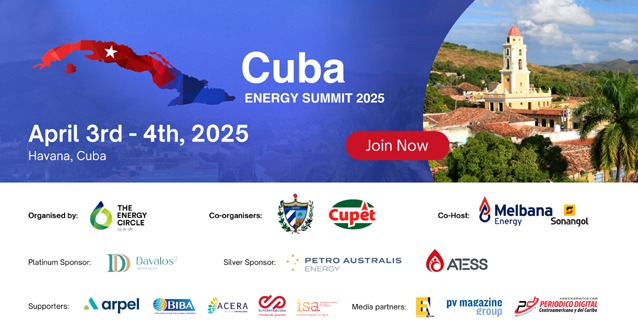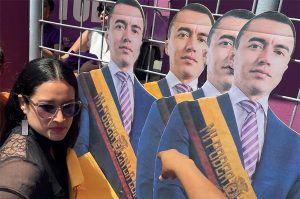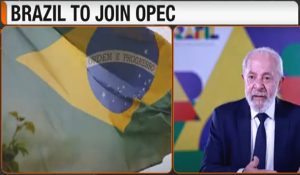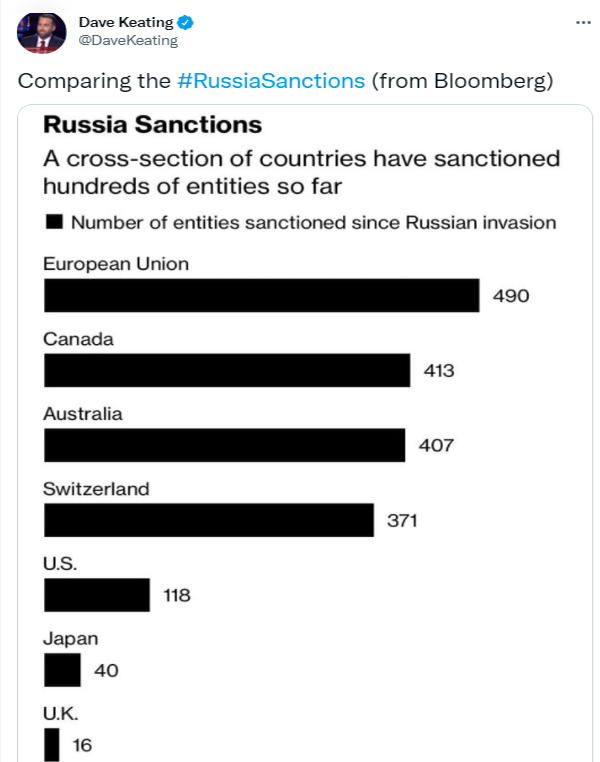
BBC
LONDON
EnergiesNet.com 03 07 2022
The US, EU and UK have sanctioned more Russian oligarchs, including Alisher Usmanov, who formerly held a large stake in Premier League club Arsenal.
It’s the latest in a wide-sweeping series of measures introduced following the invasion of Ukraine.
What is a sanction?
A sanction is a penalty imposed by one country on another, often to stop it acting aggressively or breaking international law.
Sanctions are often designed to hurt a country’s economy, or the finances of individual citizens such as leading politicians.
They are among the toughest measures nations can use, short of going to war.
What sanctions are Western nations imposing?
Financial measures
Western leaders have frozen the assets of Russia’s central bank, limiting its ability to access $630bn (£470bn) of its dollar reserves.
The US, the EU and UK have also banned people and businesses from dealings with the Russian central bank, its finance ministry and its wealth fund.
Selected Russian banks will also be removed from the Swift messaging system, which enables the smooth transfer of money across borders. The ban will delay the payments Russia gets for exports of oil and gas.
Other sanctions by the UK include:
- major Russian banks excluded from the UK financial system, stopping them from accessing sterling and clearing payments
- all Russian banks will have their assets frozen
- major Russian companies and the state will be stopped from raising finance or borrowing money on UK markets
- a limit will be placed on deposits Russians can make at UK banks
The EU also said it would target 70% of the Russian banking market and key state-owned firms, including defence firms.
Targeting individuals
Western governments have imposed sanctions on some individuals, including a “hit list” of powerful, wealthy businessmen and women close to the Kremlin known as oligarchs.
Russian President Vladimir Putin and his Foreign Minister Sergei Lavrov have also been sanctioned. Their assets in the US, EU, UK and Canada will be frozen. The US has imposed a travel ban on both of them.
On Wednesday, the US targeted the assets of eight more oligarchs and officials, including business tycoon Alisher Usmanov.
The UK has also sanctioned Usmanov, along with the former Russian deputy prime minister, Igor Shuvalov. German authorities have seized Usmanov’s luxury yacht.
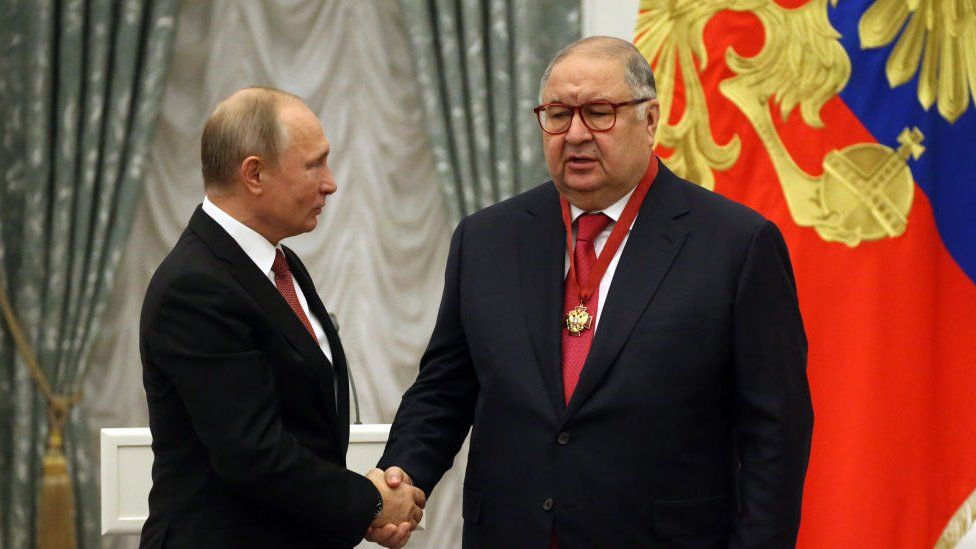
The EU, UK, US and Canada have launched a transatlantic taskforce to identify and freeze the assets of sanctioned individuals and companies.
The UK is limiting the sale of “golden visas”, which have allowed wealthy Russians to get British residency rights.
Trade with Russia and travel
Curbs on products that can be sent to Russia have been announced by the UK, EU, US and others.
These include dual-use goods – items that could have both a civilian and military use, such as chemicals or lasers.
The EU is aiming to make it impossible for Russia to upgrade its oil refineries. It is also banning the sale of aircraft and equipment to Russian airlines.
Germany has put on hold permission for the Nord Stream 2 gas pipeline from Russia to Germany to open.
The US has joined the UK, EU and Canada in banning all Russian flights from its airspace.
What about Belarus?
Neighbouring Belarus, which has been accused of helping Russia’s invasion, is also facing fresh sanctions on top of those imposed after its disputed election in 2020.
The EU pledged to stop exports by Belarus’ “most important sectors”, including tobacco, wood and cement.
It is also introducing the same dual-use restrictions that it imposed on Russia and said it would sanction those “helping the Russian war effort”.
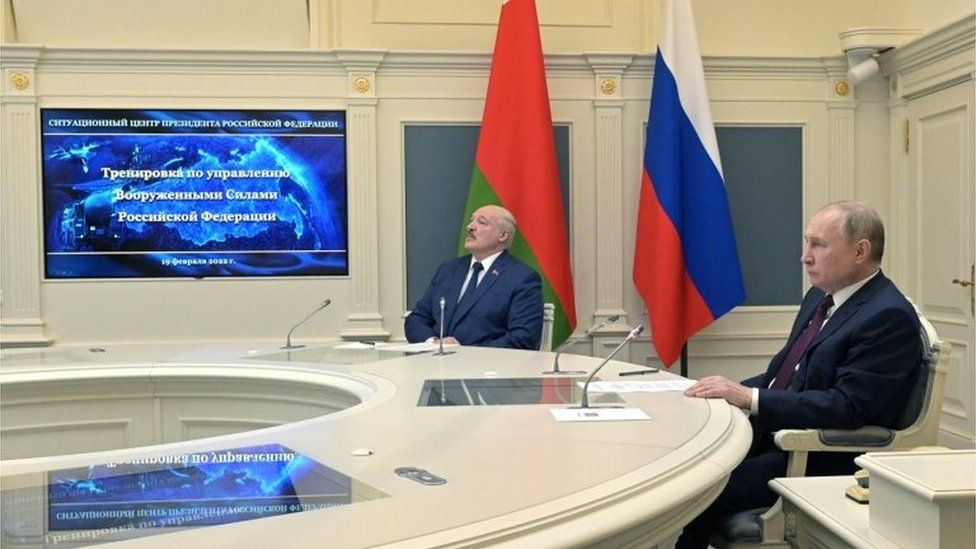
The US sanctioned a number of Belarusian individuals and entities, including state-owned banks and defence companies.
The UK sanctioned four senior defence officials, and two military enterprises.
How has Russia reacted to the sanctions?
Russia more than doubled its key interest rate in an attempt to stem the decline of the rouble, which fell 30% against the US dollar after sanctions were introduced.
Russia is blocking interest payments to foreign investors who hold government bonds, and banning Russian companies from paying overseas shareholders.
Foreign investors hold tens of billions of dollars worth of Russian stocks and bonds. Russia has stopped them from selling those assets.
The EU is worried many wealthy Russians are now converting their rouble savings into cryptocurrencies – such as Bitcoin – to get around the sanctions.
However, many of the world’s largest crypto exchanges are refusing to impose a blanket ban on Russian clients.
Russia’s foreign ministry has threatened sanctions of its own against the West. This may include reducing or shutting off gas supplies to Europe.
British airlines been banned from Russian airspace or landing at Russian airports.
bbc.com 03 04 2022

